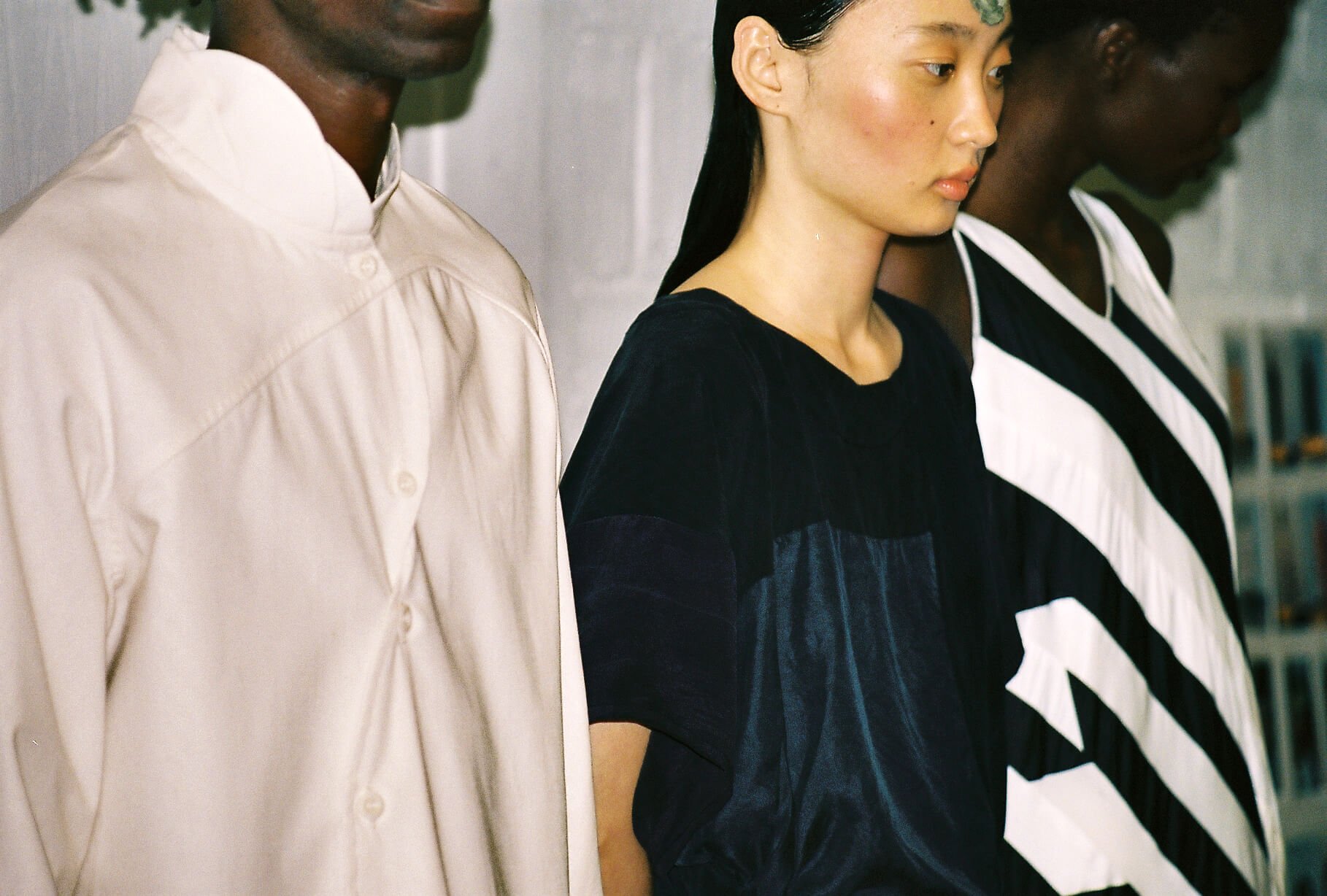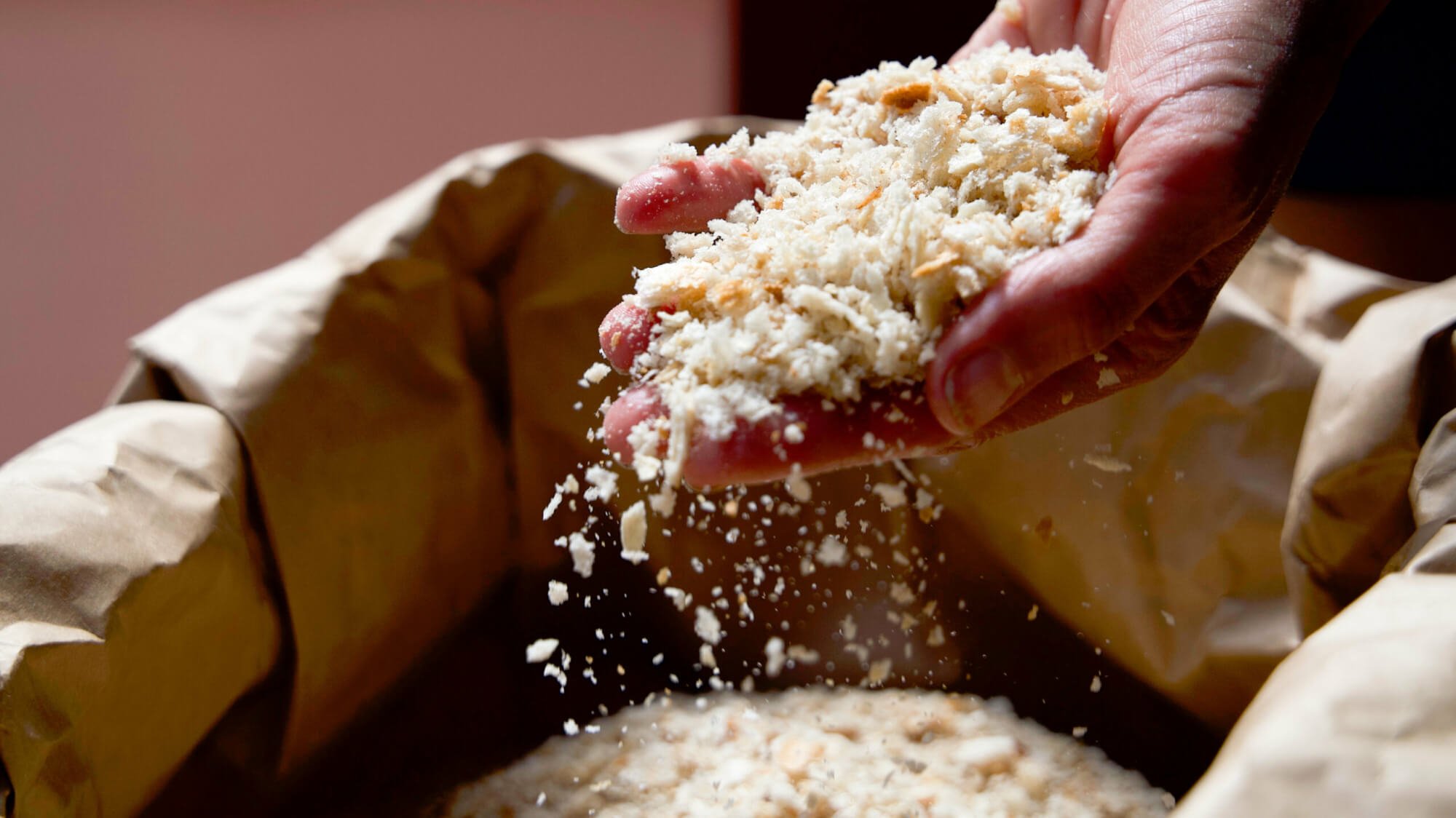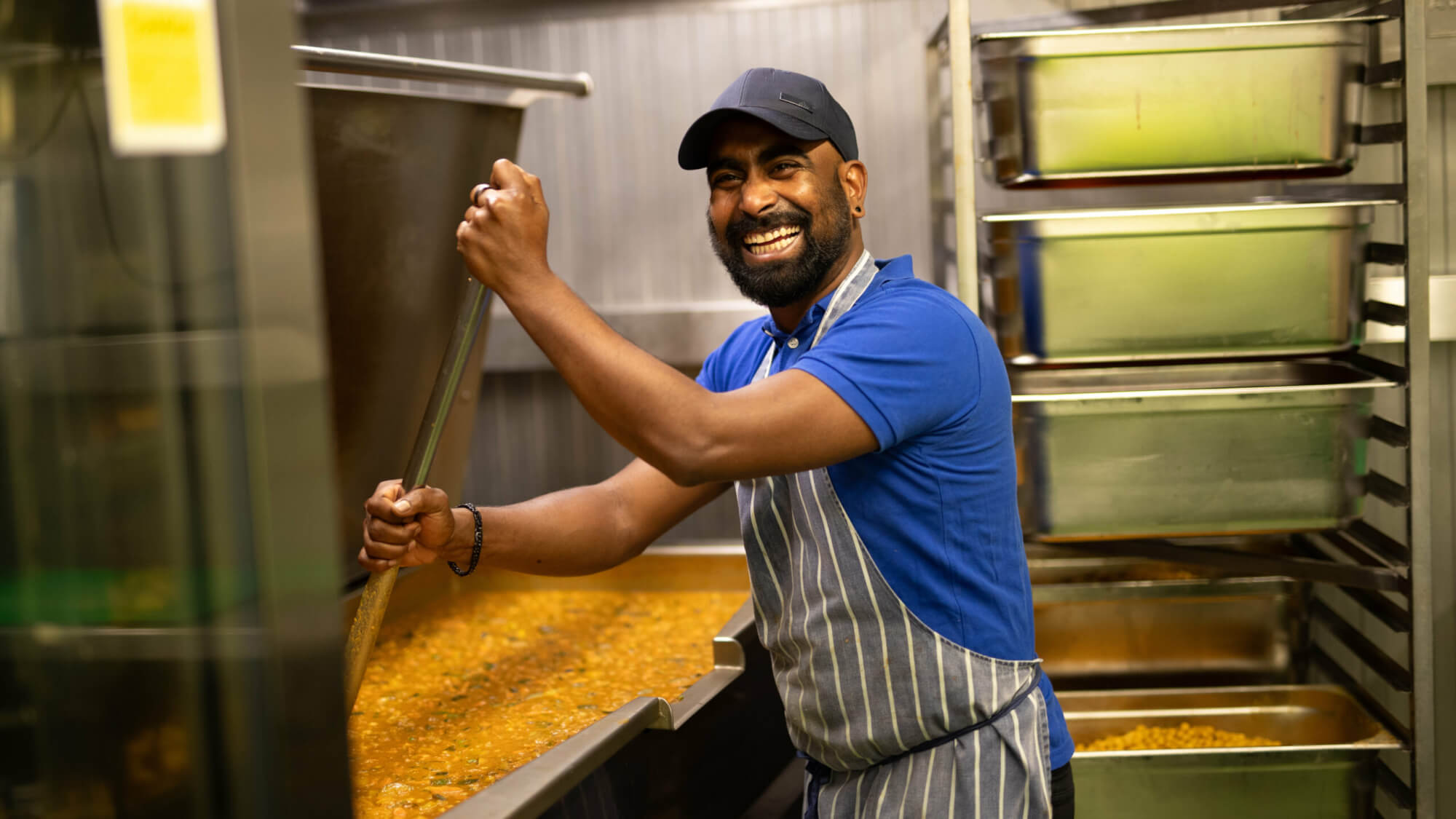Circular Booster
Support given:
Redesign
Phoebe English, a London-based sustainable fashion studio, has seen first-hand the volume of textile waste generated by fashion design and manufacturing. To tackle this problem, they wanted to become a zero-waste, closed-loop circular design studio.
ReLondon awarded the business a grant of £10,000 from the Mayor of London’s Green New Deal fund accompanied by ERDF-funded advisory support to test reusing various textile waste in different ways, including making new products, packaging and labelling, and making compost from natural fibre scraps in which to grow their own plants for dyes. In 6 months, the studio was able to source and transform 53Kg of textile waste into 255 products, generating 20 new client orders worth £20,000 in revenue and supported the creation of 2 new jobs. Phoebe English has been able to strengthen their network and capabilities and plans to take further steps on the transition to a fully circular studio model.What was the challenge?
Phoebe English is a fashion studio based in South East London, with sustainability at its core. Each annual collection is made entirely from localised, pre-consumer textile waste collected from studios and factories around London or certified and/or deadstock materials. In recent years, the studio team has received the Marie Claire Sustainability Award for ‘Best sustainable designer brand’ (2022) and honoree of the ‘Leader of change’ for ‘Environment’ at the Fashion Awards (2021).
The studio wanted to take their sustainability values one step further and transform it into a business opportunity. They had a vision of a closed-loop fashion studio where garments are made from pre-and post-consumer textile waste and coloured using dyes from plants that are locally grown in compost made from studio textile, paper and food waste. Their ambition stretched as far as turning even the smallest offcuts into labels through a paper making process.
These actions had the potential to strengthen the business by lowering operational costs, increasing revenue, and supporting profitability in the long run, all while building on the brand’s sustainability credentials and contributing to their positive environmental impact.

What was the response?
Thanks to funding from the Mayor of London’s Green New Deal fund, and advisory support from the ERDF-funded business transformation programme, Phoebe English were able to procure specialist equipment, including a HOT compost bin, that allowed them to efficiently process textile waste and test new designs and processes.
For the pilot, Phoebe English sourced pre-consumer waste by partnering with a variety of different textile-based companies such as wedding dress brands, garment factories and digital printers who benefitted in turn by reducing their own textile waste, for which there is currently no recycling solution.
The textiles were categorised by size, fibre and dye content to allow the business to plan for its re-use. The studio undertook R&D to explore the development of new products from larger textile pieces; the creation of rag paper from synthetic scraps for use as labelling and packaging; onsite composting for natural fibre scraps, and growing plants for dyes on their allotment.
What were the outcomes?
The business was able to experiment and innovate new ways to process textile waste. Over the 6-month pilot project, Phoebe English sourced and transformed 53kg of textile waste. Large pieces of fabric were turned into 255 new products which proved popular with clients, generating 20 new orders worth £20,000 in revenue, supported the creation of two new jobs and validating the closed-loop model’s potential to strengthen the business.
Having optimised the composting process for small scraps of natural, undyed textiles using the HOT compost bin, the studio can now begin returning waste to the soil to fertilise organic dye plants locally grown on their allotment. These will then be used to dye their clothes, reducing their chemical content. The last piece to the puzzle was dealing with scraps of synthetic fabric. The business researched partnering with producers of rag paper for use as labels and packaging. Although not feasible within the pilot timeframe, with a longer lead time and larger scale, this remains the ambition.
As an added benefit, the pilot enabled Phoebe English to expand and strengthen their network of partners to support the design process from sourcing textile waste to pattern and garment creation.

Collaborations include:
- Building relationships with a variety of fashion businesses to add to a database of waste suppliers, enabling Phoebe English to expand the remit of their work and develop a new method for sourcing fabric which can be replicated in upcoming collections. The waste suppliers benefit by reducing their own waste production.
- Partnering with fashion start-up, Pattern Project, using their equipment to optimise the cutting of patterns, replacing the less time and cost-efficient method of cutting by hand. This has aided in the diversification of both the studio’s production streams and product capabilities.
- Working with social enterprise, Making for Change, to translate designs into new garments while supporting the development of sewing and production skills for women in the local community.
“The pilot has helped to support our research and development in the studio: every day we learn something new. We’ve had some sharp learning curves in this process which have been so useful, but also really challenging at times. We have really learnt that some of these processes require a lot of lead time: it isn’t just a case of implementing new processes overnight.”
Harri Welch, Sales & Projects Manager, Phoebe English
Lessons Learned & next steps
Through work on the pilot, the business discovered the value of partnerships for increasing the studio’s capacity and the profitability of turning waste fabric into garments. In a short period, Phoebe English helped create a strong ecosystem of circular businesses working together, each benefitting from the partnerships and connections which will outlast the pilot and continue to contribute to the business’s future success.
Another key learning for the studio is that change doesn’t happen overnight. When introducing new processes, particularly those that rely on external partners, it’s important to plan ahead and factor in generous lead times to accommodate research and development. For example, through research they discovered that the rag paper market does not yet have solutions to accommodate small volumes of fabric to turn into labels. Equally, testing the ability to transform plants into dyes relies on planning around the natural growth and harvest cycles of the plants.
In the relatively short pilot period, the studio was able to lay the groundwork towards a fully circular model, but the benefits will be harvested (quite literally) later and feed into their long-term sustainability goals as it continues to improve its processes and approach to working with various textile ‘waste streams’, and becoming a completely closed-loop.







